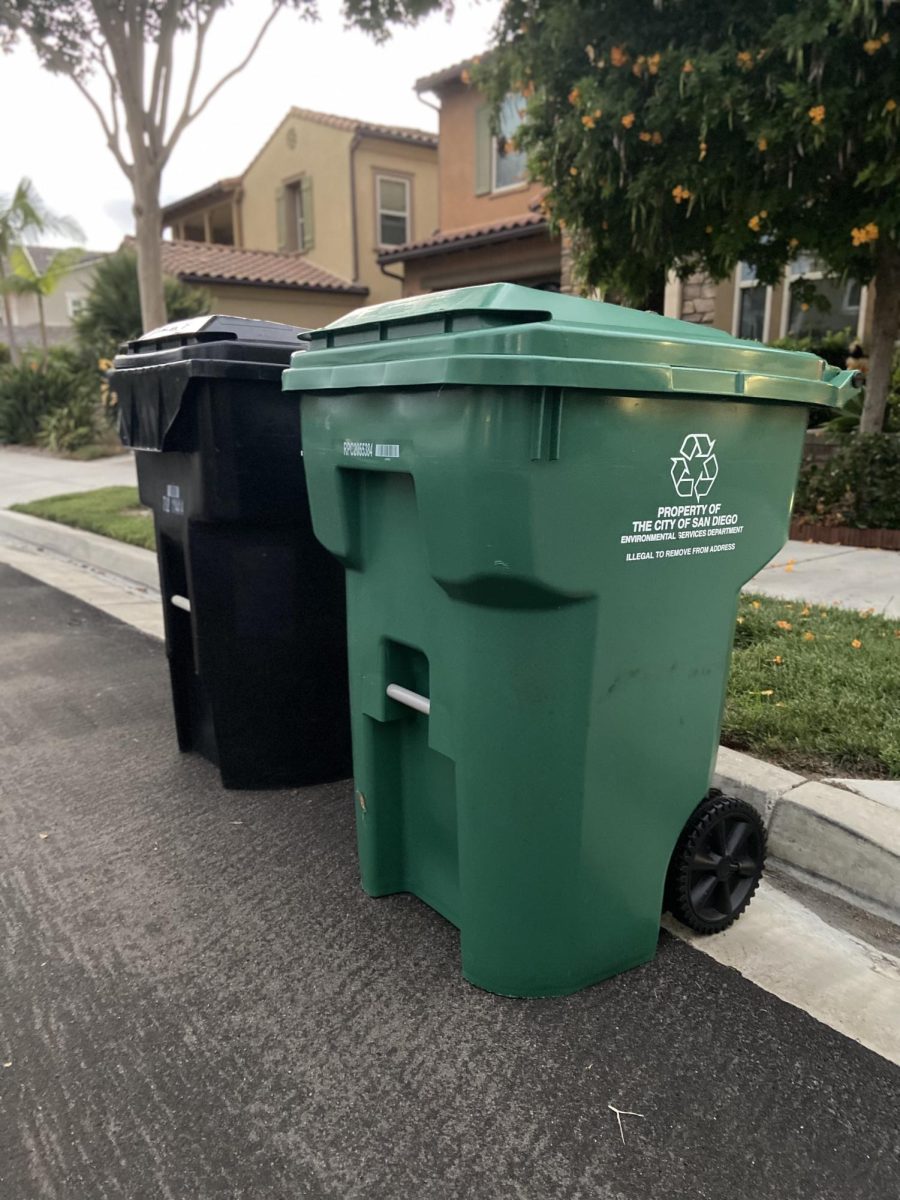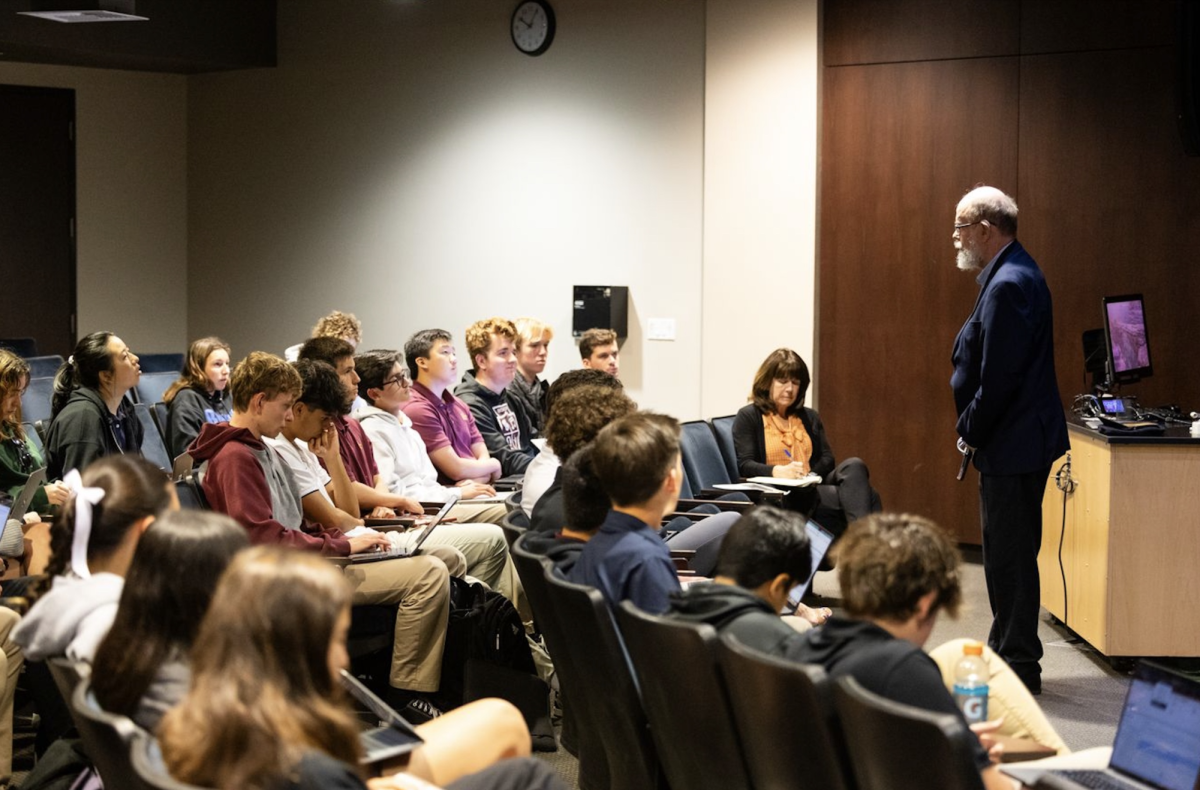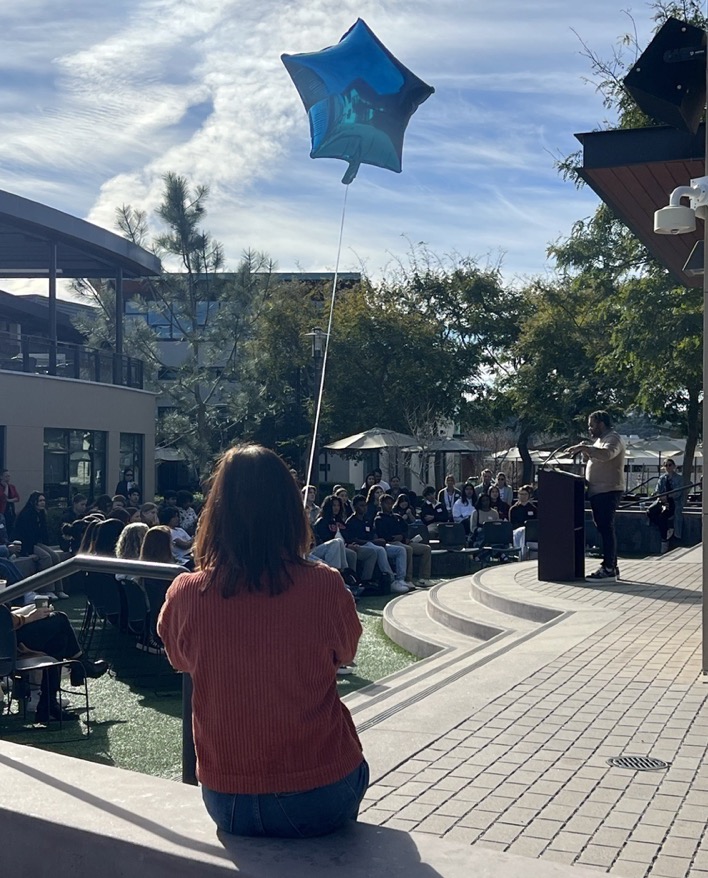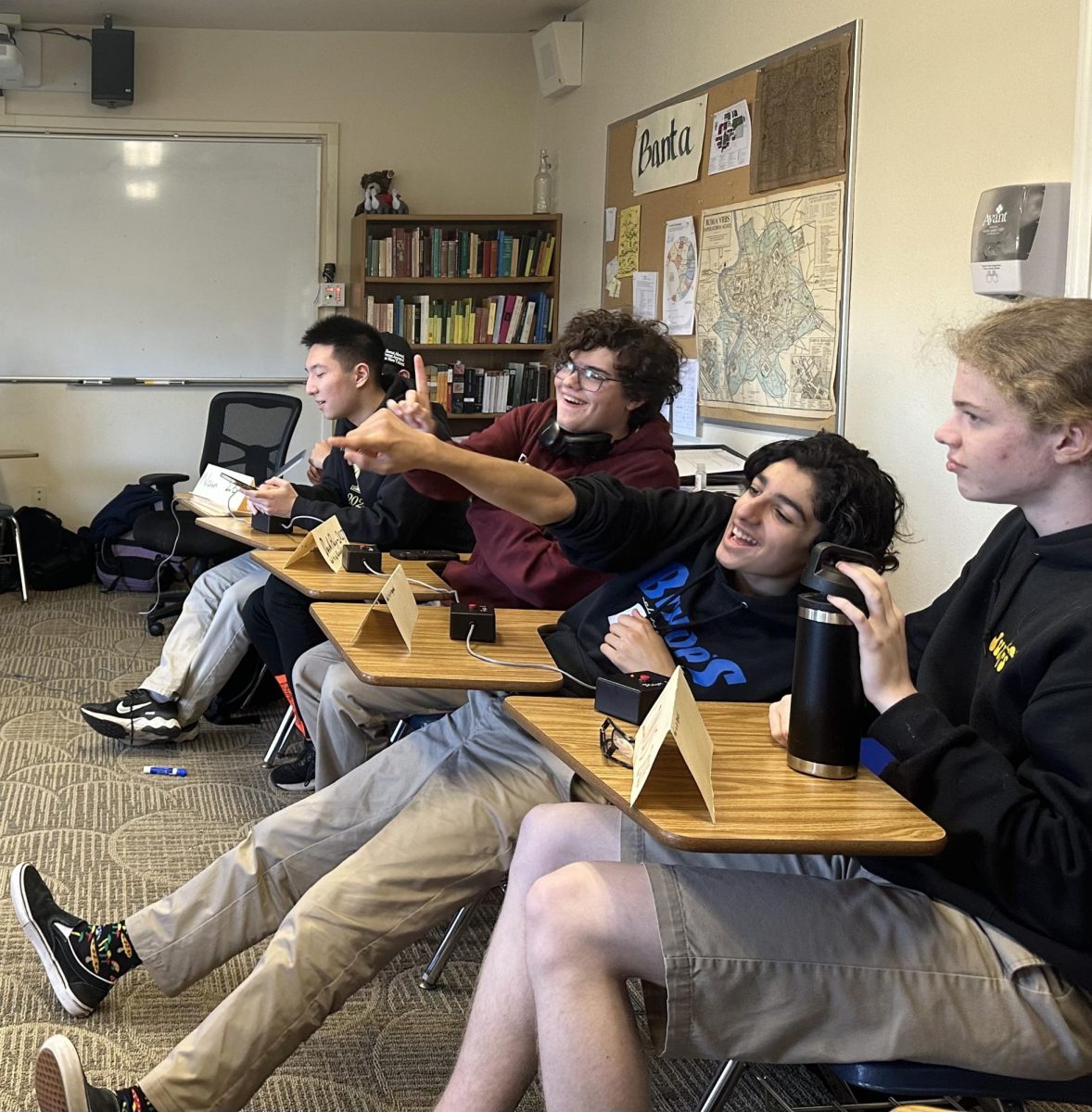You have most likely seen them in your neighborhood, and probably also in your driveway: the new green compost bins. They are part of a new statewide law that took effect in January of 2022, mandating that any household or business that produces food scraps must dispose of them in this bin, instead of the trash or recycling bins used previously.
Rollout of the new bins has been a huge logistical process, and since the implementation of the law, there have already been some notable changes. The San Diego Union-Tribune stated that “more than 200,000 green bins have been delivered, and organics recycling has more than doubled year over year.”
This new composting law is intended to reduce the amount of food scraps that end up in the trash, but also to save families money. According to KPBS San Diego, “A family of four wastes on average $1,866 per year on food.”
Chemistry Teacher Dr. Reynolds and many other experts believe that composting also helps to “clean up” landfills. “In a landfill, that food waste doesn’t decompose,” she explained. “Studies have shown that a head of lettuce may still be around 30 years in a landfill.”
More generally, Dr. Reynolds thinks sustainability is important. “The quality of our existence is only as good as our stewardship of the planet,” she remarked. She added that Earth is “now under quantifiable environmental stress from our fossil fuel use.”
Due to the record highs in temperatures around the world and San Diego, renewability and clean energy can be highly useful. So, what is Bishop’s doing to be a sustainable school? We serve food to more than 800 students in total, and the campus requires a lot of power and electricity.
Bishop’s has their very own composting system that uses all the food scraps collected during lunch and after school. According to Dr. Reynolds, part of the push for composting food on campus was done by Bishop’s students Kirra McColl and Andrew Yashar in 2018.
Most of the green energy sources here on campus are the result of students campaigning for change due to the amount of energy Bishop’s requires to run smoothly daily. Many things have been improved to make Bishop’s a greener place recently since climate change has become a bigger problem.
On top of many buildings across campus, Dr. Reynolds commented that solar panels “were donated by individuals who felt strongly that we should reduce our community carbon footprint.”
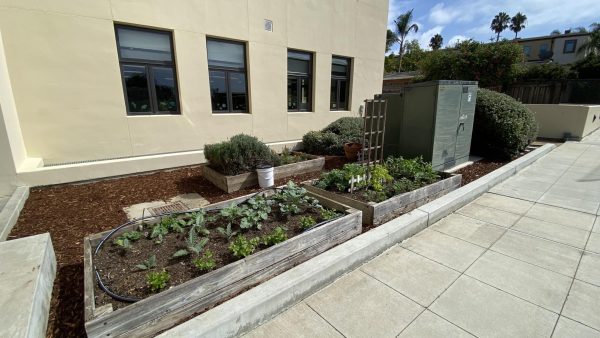
Many of Bishop’s buildings were approved by the U.S. Green Building Council under the LEED (Leadership in Energy and Environmental Design) rating system. According to Dr. Reynolds, “LEED buildings are certified for using green products and structural design that consider our environmental impact.”
With the addition of solar panels, an effective composting system, and clean energy, Bishop’s has worked hard to become more sustainable as climate change has pushed itself to the forefront of current issues. However, being sustainable must also come from within.
Little things can make a bigger difference than you might expect, whether it be composting food that hasn’t been eaten, driving less, or even just taking shorter showers. As Dr. Reynolds proclaimed, “Do we have the will to be pro-planet rather than pro-self?”


